In recent years, increasingly large amounts of activated carbon have been produced from raw materials such as coal and coconut shells for use as adsorbent materials in applications ranging from air and water purification to production of skin cleansers and other body care products. In the course of R&D work on battery electrode materials, Sony discovered that rice husks have a unique micro structure. Taking advantage of this structure, Sony developed a new plant-derived porous carbon material* with excellent adsorption properties, called Triporous™. Considering that Japan alone generates about 2 million tons of rice husk waste annually and that total annual worldwide amount is estimated to be more than 100 million tons per year, the utilization of this surplus biomass to produce Triporous helps contributing to the realization of a more environmentally conscious, recycling-oriented society. In 2014, Sony received The 21st Century Encouragement of Invention Prize from the Japan Institute of Invention and Innovation for developing Triporous technology.
* The material has huge numbers of minute holes to which other substances adsorb.

Contribution to the Sustainable Development Goals (SDGs)
Through Triporous, Sony is working on solving social issues and contributing to Sustainable Development Goals (SDGs) adopted by United Nations.Through Triporous, Sony supports the Sustainable Development Goals
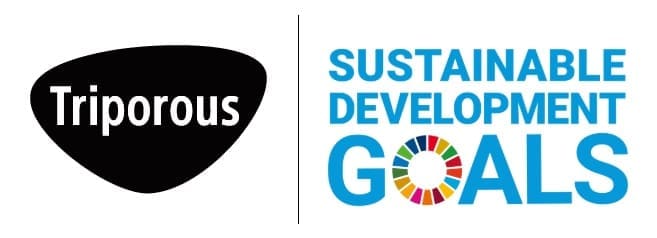
1. Triporous helps contributing to the recycling-oriented society by utilization of discarded rice husk (Goal #12)
Over 100 million tons of rice husks are estimated to be discarded worldwide every year, and about 2 million are discarded within Japan alone. 100kg of Triporous can be generated from 1 ton of rice husks. By recycling the huge mass of discarded rice husks, Sony contribute to recycling-oriented society and realization of circular economy.
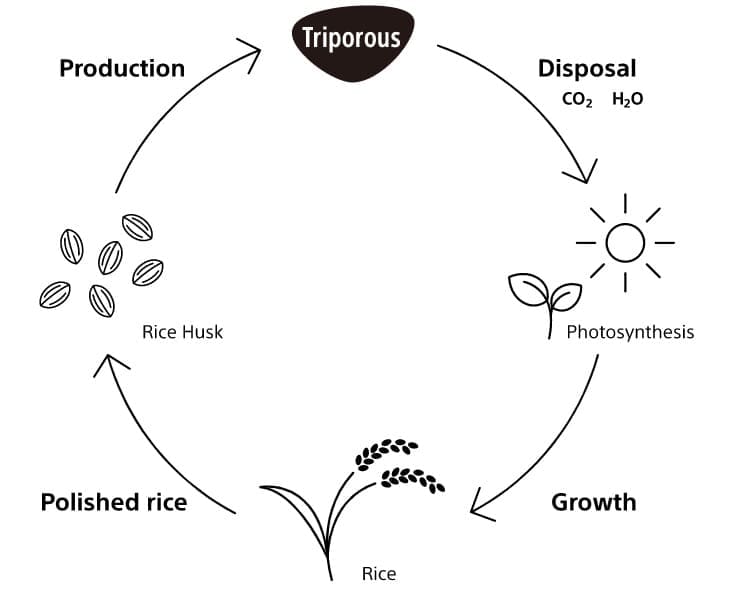
The figure below illustrates the growth of rice plants by means of photosynthesis
and the recycling of rice husk waste in the production of Triporous.
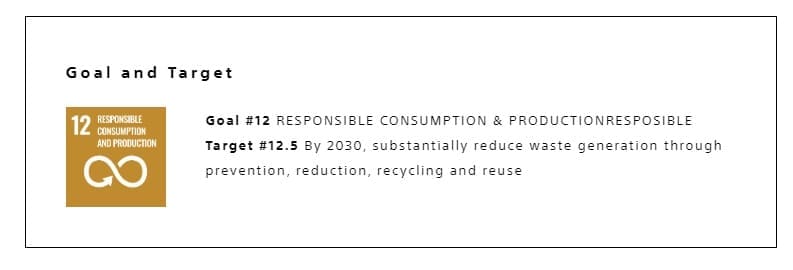
2. Through adsorption properties of Triporous, Sony contributes to cleaning water and air (Goal #3, #6, #11)
According to a report by the World Health Organization (WHO), 2.1 billion people around the world are struggling with access to safe water*1, and approximately 7 million death are due to the exposure from both outdoor and household air pollution*2. The unique microstructure of Triporous offers superior performance in removing larger organic substances, such as virus from liquid, compared to the coconut-husk-based activated carbon adsorbent typically used in water purification. This would be particularly beneficial in developing countries. Triporous can also clean air by adsorbing pollutants like Volatile Organic Compounds (VOCs). This also helps in reducing exposure to some types of microscopic particulate matter (PM2.5) and photochemical smog. Through Triporous, Sony contributes to world’s access to safe water and improving air pollution.
*1 Source: 2.1 billion people lack safe drinking water at home, more than twice as many lack safe sanitation
*2 Source: 7 million premature deaths annually linked to air pollution
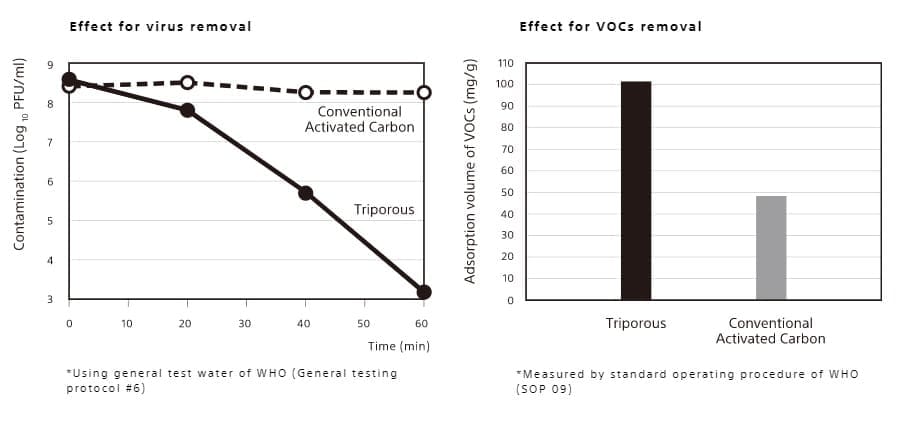
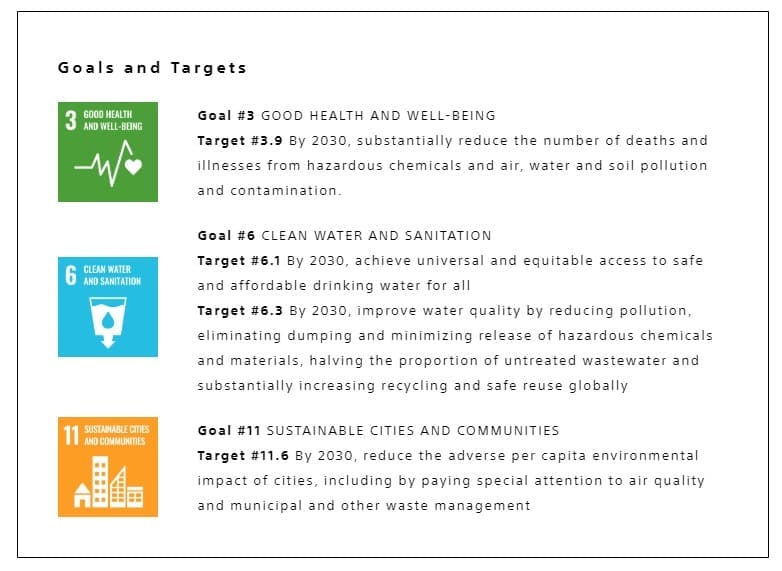
3. Promote R&D and business development globally with open innovation (Goal #17)
In order to introduce Triporous to society, we are promoting global open innovation with various research institutes and companies in Japan and overseas.


